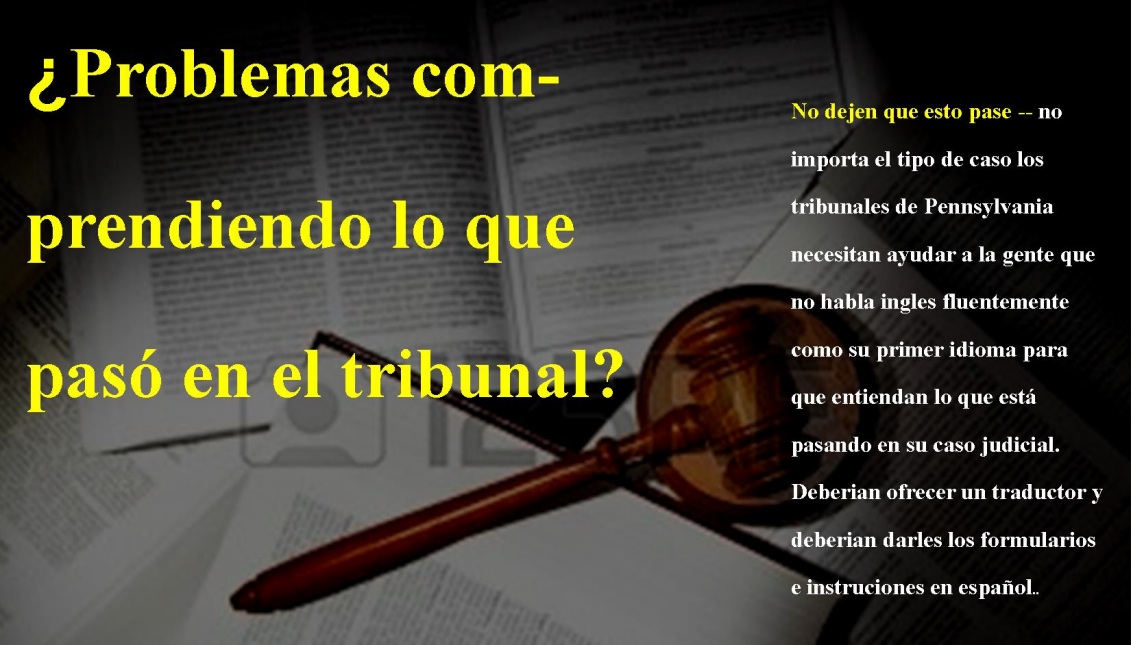
No interpreter, no justice in PA courts?
The American Civil Liberties Union (ACLU) of Pennsylvania is developing a language access project that is investigating how Pennsylvania courts are serving limited English proficient (LEP) populations, and how it affects immigrant communities in the region.
"We are interested in Spanish-speaking people who went to court and were not given a translator nor material in their own language, and as a result were affected negatively" said Audrey-Marie H. Winn, from the ACLU.
The American Civil Liberties Union (ACLU) of Pennsylvania is developing a language access project that is investigating how Pennsylvania courts are serving limited English proficient (LEP) populations, and how it affects immigrant communities in the region.
"We are interested in Spanish-speaking people who went to court and were not given a translator nor material in their own language, and as a result were affected negatively" said Audrey-Marie H. Winn, from the ACLU.
Since the start of the project, they have contacted the Office of Magisterial District Judges throughout the state, to verify if they offered any material in a language other than English.
"A lot of the Offices only had a written policy concerning language access and didn’t have materials translated into other languages, which is inconsistent with the obligation to provide them," Winn said.
The results so far suggest that not all courts in Pennsylvania are fulfilling their requirement to provide interpreters, materials, forms and other essential resources in different languages.
"In the past we challenged Hazleton on 'show me your papers' laws, and the imprisonment of naturalized citizens on suspicion of being undocumented. The ACLU has always focused on immigrant’s and refugee’s rights," Winn said.
The project seeks to emphasize that, regardless of the case, Pennsylvania courts need to provide proper assistance to people who are not proficient in English.
"We think that it is a real problem and it’s an actual need. We want to find out the extent of the problem," Winn said.
The organization clarified that for this particular project it will not provide individual legal assistance, but rather seeks to gather experiences of a group of litigants who show a pattern of abuse and ultimately cause a change.
"We are looking for cases of people who are non-English speakers, and for example, went to court to try to testify,” she said. “But later the judge throw (them) out because he couldn’t understand them".
So far ACLU information materials have been translated into Spanish, Chinese, Vietnamese and French.
If you need more information, or you do not speak English well and were not given a translator or documents in your native language while in court, you can share your story anonymously by calling ACLU at (877) 745 - 2228.
For more information visit aclupa.org and aclupa.org/issues/immigrantsrights.










LEAVE A COMMENT:
Join the discussion! Leave a comment.